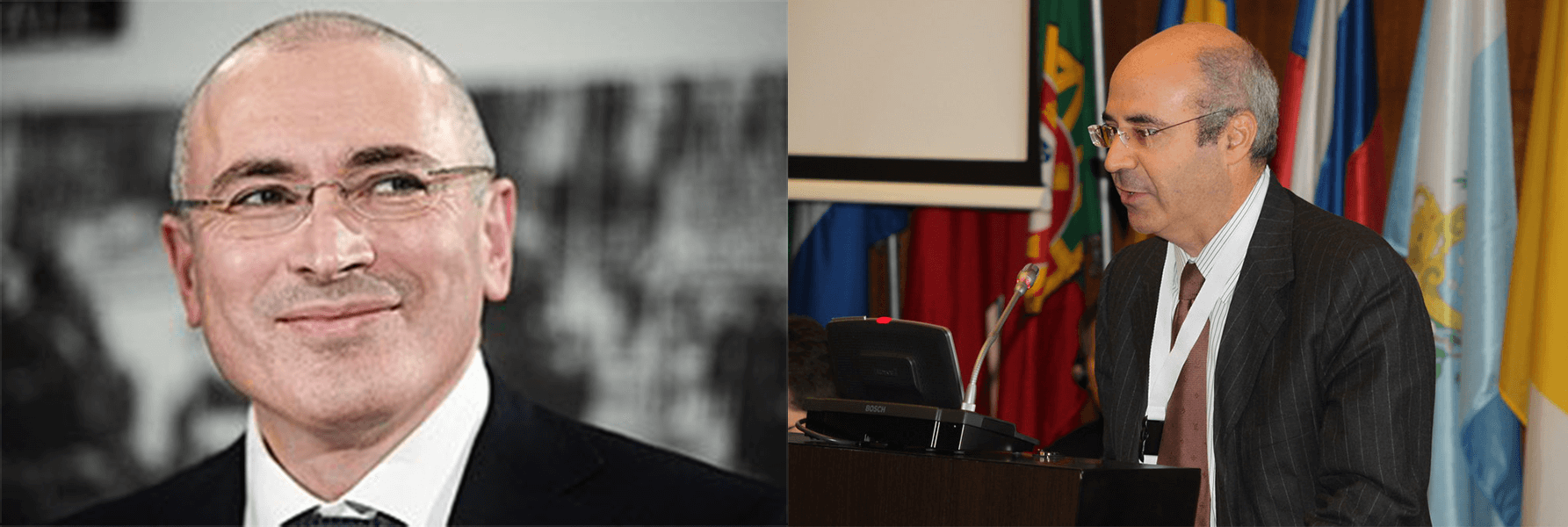Mikhail Khodorkovsky put a worm of panic into the EU, claiming that many important European addresses, and even Angela Merkel’s closest surroundings, were “drilled” by Vladimir Putin and are serving his influence on European affairs. We do not yet know whether the richest Russian once, and then Putin’s greatest victim, just wants attention or wants revenge on his persecutor, but his motives are now the least important. The effect of his rather convincing story that the tentacles of the Kremlin and Putin reached Angela Merkel’s inner circle, the Austrian intelligence service, the French members of the European Parliament, the Czech government, almost no one was spared – from Cyprus to the Baltics, remained important, as was interpreted by the Brussels-EU Observer.
Concerned European public, politicians, media, research centers, will deal with this testimony of Vladimir Khodorkovsky for months. There will be new scandals and names that will leak from the investigations in the meantime, and the panic from Russian agents will increase. And that is exactly the result that the Kremlin will be most happy about. As long as Europe is chasing its tail and not dealing with the things for which it was made, and thus not spreading its positive influence on the environment and the world, Russia will be satisfied.
Brussels has spent close to 20 million euros on defense against Russian disinformation since 2018. It can be said that it is not much for huge EU budgets, but the question is what is the effect of this cost, when, according to Khodorkovsky, there is almost no European institution and government that is not spared from the long arm of Moscow’s influence.
Even if they had the best possible relations, Europe would be exposed to Russian propaganda and intelligence influence. This is completely legitimate, any influential state would do (and does) the same. There is no room for any sensations, shocks and moral panic. But, the EU is behaving exactly like that, it is scandalized by the knowledge that Russia is roaming in its political and media ranks, expanding its influence through the soft and democratic European tissue.
At the moment when the EU imposed sanctions on Russia, and that happened back in 2014, it had to count on the fact that they will not sit idly by in Moscow. Unfortunately, it is shocked even today when it learns that Putin and his people are not resting under the burden of sanctions, but that they have long ago launched a counterattack. It is especially unfortunate that the EU is still convinced that it has finished the job by banning European companies and countries from doing business with Russia, and that this will have an effect at some point. The scope of sanctions is expanding from year to year, and their power is considered the only one that Europe should use. The European Commission is considering sanctions for those who spread disinformation in cyberspace, on social networks, for example.
Serbia is under constant pressure from the European Union to join its sanctions against Russia, which is repeated from year to year through various European reports and analysis, and is repeated by the most influential European politicians. However, they always get the same answer from Aleksandar Vučić, that there will be no such sanctions, because Serbia has a great economic and political interest in cooperation with Russia, and that it would harm itself if it joined the sanctions.
The EU has lost the authority to ask others to join its repressive policy towards Russia, primarily because it does not adhere to them. The construction of the Nord Stream gas pipeline from Russia to Germany, which is close to completion, is only the biggest and most current proof of the hesitation of European sanctions against Russia and the companies there. Aside from the fact that economic sanctions have not even shaken the regime in the Kremlin and Vladimir Putin personally, which has been their only goal since they were imposed.
The model of cooperation that Serbia has with Russia is closer to the European principles of the open market than the one that the EU is currently applying. The principle is clear, if the goods are of good quality and their price is favorable, then it is not a question of where they come from. Except when geopolitics interferes with this logic. But even that does not bring results when Serbia, for example, is considered to have a huge energy dependence on Russia, and to lose sight of the fact that five European countries are more dependent on gas from Russia, of which two are EU members (Finland and Latvia).
The EU is unlikely to lift sanctions on Russia quickly, but that doesn’t stop it from quickly giving up pressure on non-members to join the sanctions. On Serbia, for example. That pressure has no content and logic, it is at work only because of the long, bureaucratic inertia to implement something at any cost, which was estimated to bring results seven years ago. There are no results, and sanctions are being evaded at every step.
As the cradle of creative diplomacy, the EU should look for new ways to regulate its relations with Russia, and Serbia is no obstacle to that. If it really insists on maintaining a certain level of sanctions against Russia, then without a doubt the only effective one is the one provided by the Magnitsky Act, which it has applied in some situations. These are the only sanctions that affect specific, corrupt and violent state and business people, and not the entire state and all their citizens. America, Britain and Canada are already following this path, for example, followed by Australia, and even some EU members, and in the foreseeable future, maybe Serbia and someone else in the Balkans. Cooperation on such a level of sanctions would have a European justification and a European purpose, and thus full European strength. The nervousness and pressure that are on the scene now, do not have that.
